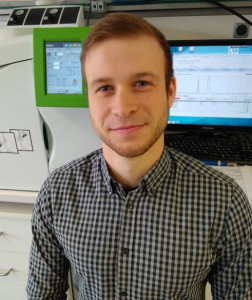Speakers of IGC Symposium 2017
Dr. Thomas Koch, Kronos International, Leverkusen, Germany
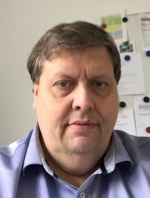 Dr. Thomas Koch was born in 1965 at Hof/Saale, Germany. In 1993 he finished his studies with diploma in Technical Physics at University of Bayreuth. At the Department for Experimental Physics III of University Bayreuth (Prof. J. Küppers) he became specialist for surface analysis by spectroscopical methods, for epitaxial growth by evaporation and sputtering as well as for SPM (Scanning Probe Microscopy) at variable temperatures. From 1999 to 2008 he worked at the Institute of Nanotechnology, KIT and the Institute of Applied Physics, KIT (Prof. Th. Schimmel) as specialist for method development and analysis in the field of SPM- and EM- (Electron Microscopy) based nanostructuring and microscopy as well as for Nano Electronics and Nano Electrochemistry. 2006 he made his PhD within an international collaboration with the topic of development and characterization of thin layers of stoichiometric MgB2 (Prof A. Sidorenko, ASC Moldova). From 2008 to 2010 he was postdoc within the Cluster of Excellence at the Chair for Particle Technology (Prof. W. Peukert, LFG) of Friedrich-Alexander University Erlangen-Nuremberg and there responsible for the subjects ‘forces at interfaces’ and ‘particle mechanics’. Since 2011 he works for KRONOS Int. Inc., a TiO2-producer, at Research Services as manager of the department Analytical Intelligence.
Dr. Thomas Koch was born in 1965 at Hof/Saale, Germany. In 1993 he finished his studies with diploma in Technical Physics at University of Bayreuth. At the Department for Experimental Physics III of University Bayreuth (Prof. J. Küppers) he became specialist for surface analysis by spectroscopical methods, for epitaxial growth by evaporation and sputtering as well as for SPM (Scanning Probe Microscopy) at variable temperatures. From 1999 to 2008 he worked at the Institute of Nanotechnology, KIT and the Institute of Applied Physics, KIT (Prof. Th. Schimmel) as specialist for method development and analysis in the field of SPM- and EM- (Electron Microscopy) based nanostructuring and microscopy as well as for Nano Electronics and Nano Electrochemistry. 2006 he made his PhD within an international collaboration with the topic of development and characterization of thin layers of stoichiometric MgB2 (Prof A. Sidorenko, ASC Moldova). From 2008 to 2010 he was postdoc within the Cluster of Excellence at the Chair for Particle Technology (Prof. W. Peukert, LFG) of Friedrich-Alexander University Erlangen-Nuremberg and there responsible for the subjects ‘forces at interfaces’ and ‘particle mechanics’. Since 2011 he works for KRONOS Int. Inc., a TiO2-producer, at Research Services as manager of the department Analytical Intelligence.
Katarzyna Adamska, Institute of Chemical Technology and Engineering, Poznan University of Technology, Poznan, Poland
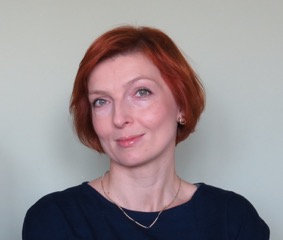 was graduated at Wroclaw University of Technology at Faculty of Chemistry in 1999. In 2002 she started Ph.D. studies at Poznan Univeristy of Technology at Institute of Chemical Technology and Engineering.
was graduated at Wroclaw University of Technology at Faculty of Chemistry in 1999. In 2002 she started Ph.D. studies at Poznan Univeristy of Technology at Institute of Chemical Technology and Engineering.
In 2007 she got the academic degree of Doctor. Her Ph.D. thesis entitled „Determination of the solubility parameter and its components for materials used in the pharmaceutical industry” was related, mainly, to the use of inverse gas chromatography in studies of different excipients, applied in pharmaceutical formulations. This work was carried out in research collaboration with Bayer AG, Leverkusen.
The work she has been doing up to present is related to synthesis of new materials (e.g. ceramic biomaterials), their modification and estimation of bulk and surface properties of different materials by IGC, ILC.
Dr. Matthias Kellermeier, Ludwigshafen, Germany
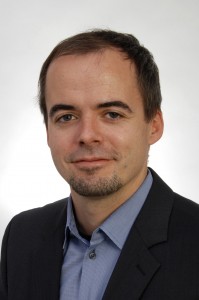 Matthias Kellermeier studied chemistry at the University of Regensburg and received his Ph.D. in the group of Prof. Dr. W. Kunz with a thesis on biomimetic crystallization, for which he was awarded the Starck Prize for Solid State Chemistry and Materials Research. From 2011 to 2013, he worked as a postdoctoral researcher at the University of Konstanz with Prof. Dr. H. Cölfen, studying principles of self-organization and basic mechanisms of mineral nucleation and growth. In 2013, he joined BASF SE as a Research Scientist in the Department of Material Physics, where he took over responsibility for the Specialist Area “Surface Characterization” in 2017. Currently, Matthias Kellermeier coordinates research projects on topics ranging from the design of functional surfaces over polymer-surfactant systems to crystallization control for inorganic materials, all including collaborations with academic partners. Very recently, he edited a book entitled “New Perspectives on Mineral Nucleation and Growth” with colleagues from different universities.
Matthias Kellermeier studied chemistry at the University of Regensburg and received his Ph.D. in the group of Prof. Dr. W. Kunz with a thesis on biomimetic crystallization, for which he was awarded the Starck Prize for Solid State Chemistry and Materials Research. From 2011 to 2013, he worked as a postdoctoral researcher at the University of Konstanz with Prof. Dr. H. Cölfen, studying principles of self-organization and basic mechanisms of mineral nucleation and growth. In 2013, he joined BASF SE as a Research Scientist in the Department of Material Physics, where he took over responsibility for the Specialist Area “Surface Characterization” in 2017. Currently, Matthias Kellermeier coordinates research projects on topics ranging from the design of functional surfaces over polymer-surfactant systems to crystallization control for inorganic materials, all including collaborations with academic partners. Very recently, he edited a book entitled “New Perspectives on Mineral Nucleation and Growth” with colleagues from different universities.
Dr. J. Gamelas, University o Coimbra, Portugal
José Gamelas is member of the Chemical Process Engineering and Forest Products Research Centre in Coimbra, Portugal. He received his BS degree in Analytical 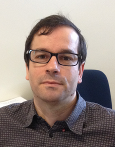 Chemistry from the University of Aveiro in 1992 and a PhD in Chemistry from the same University in 2001. His research interests have been the synthesis, characterization and applications of polyoxoanions, physical-chemistry of cellulose-based materials, and inverse gas chromatography applied to material’s surface chemical characterization. He is author of 60 papers in international peer- reviewed journals and 4 book chapters in international editions, 10 of them dedicated to inverse gas chromatography applied to the surface characterization of a wide range of materials (including polysaccharides, clays, and hydroxyapatites). During his academic and scientific route he was awarded four times. The most important awards he received were the 2013 and 2016 Tecnicelpa awards (together with colleagues from University of Aveiro and Coimbra), a prize money for the best work in the pulp and paper area attributed only once every three years by the Portuguese association of the technicians of the pulp and paper industry.
Chemistry from the University of Aveiro in 1992 and a PhD in Chemistry from the same University in 2001. His research interests have been the synthesis, characterization and applications of polyoxoanions, physical-chemistry of cellulose-based materials, and inverse gas chromatography applied to material’s surface chemical characterization. He is author of 60 papers in international peer- reviewed journals and 4 book chapters in international editions, 10 of them dedicated to inverse gas chromatography applied to the surface characterization of a wide range of materials (including polysaccharides, clays, and hydroxyapatites). During his academic and scientific route he was awarded four times. The most important awards he received were the 2013 and 2016 Tecnicelpa awards (together with colleagues from University of Aveiro and Coimbra), a prize money for the best work in the pulp and paper area attributed only once every three years by the Portuguese association of the technicians of the pulp and paper industry.
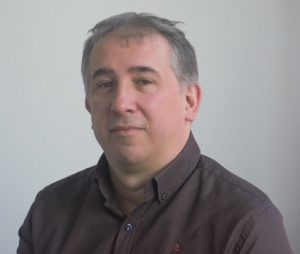 Dr. Eric Brendle, Adscientis, Wittelsheim, France
Dr. Eric Brendle, Adscientis, Wittelsheim, France
Dr Eric Brendlé was born in 1967 in Mulhouse (France). He is graduated in Physical Chemistry from chemistry high school of Mulhouse France (Laboratoire de Chimie et Energie de Surface, led by Dr E.PAPIRER).
In 1997 he obtained a Ph.D entitled “Surface properties study of iron oxide (goethite, hematite) influence of the heat treatment”.
He created his own company in 2000: Adscientis provides Inverse Gas Chromatography analysis. The offered services bring customer’s elements to understand and master the phenomenon occurring at the molecular level on surfaces and interfaces of the materials.
The company has gained valuable experiences in the field of Inverse Chromatography, and Eric Brendlé is acknowledged as an expert.
Dr. M. Rudolph, Helmholtz-Institute, Freiberg, Germany
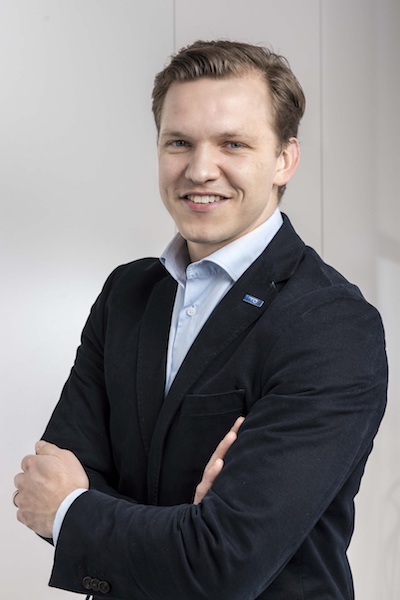 is a process engineer, born in 1983, with fundamental interest in fine particle / nanoparticle systems as well as colloid and interface science. His interest in interfaces reaches back to his early times as a student in process engineering at the TU Bergakademie Freiberg starting with a research stay with Heidelberger Druckmaschinen AG in 2006 studying particle adhesion phenomena and his diploma thesis in 2008 on nano-diamond dispersions at the Fraunhofer IZFP in Dresden. From 2008 to 2012 he was a PhD working on a DFG (German Research Foundation) funded project for the development of a processing route to synthesize/produce highly filled nanoparticle-polymer-composite. His thesis was on “Nanoparticle-Polymer-Composites the solution and spray drying process with an emphasis on colloidal interactions” (http://doi.org/10.13140/RG.2.1.1335.2166). Since 2012 he is a principal investigator at the Helmholtz Institute Freiberg for Resource Technology (HIF) of the Helmholtz-Zentrum Dresden-Rossendorf where he became the head of the processing department in 2016. In this function and with a large team of post-docs, PhDs and technicians his main focus is on flotation, a heterocoagulation process for the efficient separation of fine particles through physicochemical changes on (mineral)particle/water interfaces. Google Scholar: http://scholar.google.de/citations?user=TA0LiDYAAAAJ&hl=de
is a process engineer, born in 1983, with fundamental interest in fine particle / nanoparticle systems as well as colloid and interface science. His interest in interfaces reaches back to his early times as a student in process engineering at the TU Bergakademie Freiberg starting with a research stay with Heidelberger Druckmaschinen AG in 2006 studying particle adhesion phenomena and his diploma thesis in 2008 on nano-diamond dispersions at the Fraunhofer IZFP in Dresden. From 2008 to 2012 he was a PhD working on a DFG (German Research Foundation) funded project for the development of a processing route to synthesize/produce highly filled nanoparticle-polymer-composite. His thesis was on “Nanoparticle-Polymer-Composites the solution and spray drying process with an emphasis on colloidal interactions” (http://doi.org/10.13140/RG.2.1.1335.2166). Since 2012 he is a principal investigator at the Helmholtz Institute Freiberg for Resource Technology (HIF) of the Helmholtz-Zentrum Dresden-Rossendorf where he became the head of the processing department in 2016. In this function and with a large team of post-docs, PhDs and technicians his main focus is on flotation, a heterocoagulation process for the efficient separation of fine particles through physicochemical changes on (mineral)particle/water interfaces. Google Scholar: http://scholar.google.de/citations?user=TA0LiDYAAAAJ&hl=de
Max Rieger, Fraunhofer Institut, Karlsruhe, Germany
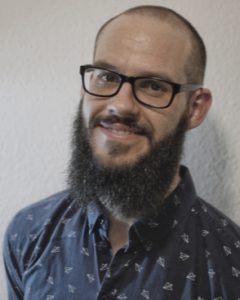 Max Rieger studied chemistry at the University of Würzburg and received his diploma in 2011 in the field of theoretical and physical chemistry. Since 2011 he is part of the analytics and detection group within the department of energetic materials at the Fraunhofer Institute for Chemical Technology (ICT) in Pfinztal. He is involved in porous materials characterization and preconcentration methods for explosive and hazardous materials.
Max Rieger studied chemistry at the University of Würzburg and received his diploma in 2011 in the field of theoretical and physical chemistry. Since 2011 he is part of the analytics and detection group within the department of energetic materials at the Fraunhofer Institute for Chemical Technology (ICT) in Pfinztal. He is involved in porous materials characterization and preconcentration methods for explosive and hazardous materials.
Ralf Meyer, Institute of Chemical Technology, University of Leipzig, Leipzig, Germany
Ralf Meyer studied chemistry at the University of Leipzig and received his Master of Science in 2015 in the group of Prof. Dr. D. Enke with the main emphasis in structured porous materials, their application and characterization methods. Since 2015 he is part of the Enke Group as Ph.D. student within the Institute of Chemical Technology (ITC) department for Chemical Reaction Engineering in Leipzig. His research interests are high temperature stable catalyst supports with highly ordered pore structure based on anodized alumina membranes, synthesis of catalytic active alumina based spinel systems, and determination of physico-chemical properties of modified porous support materials such as alumina and silica by inverse gas chromatography.

